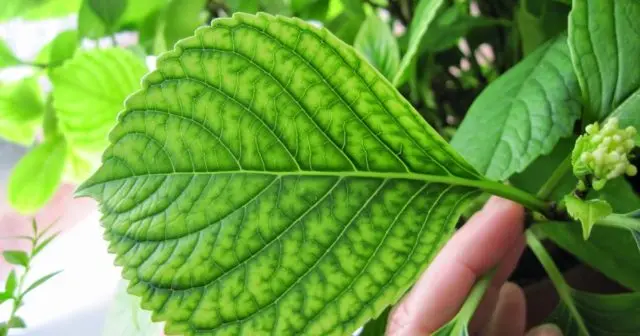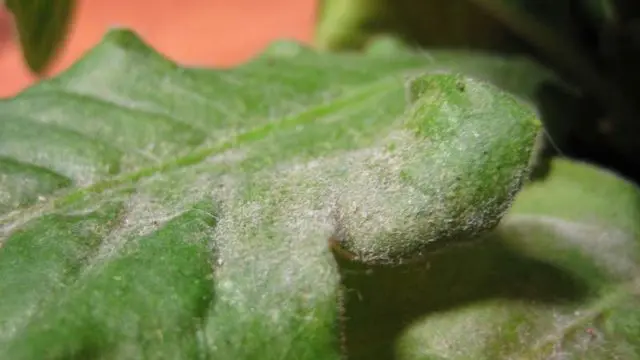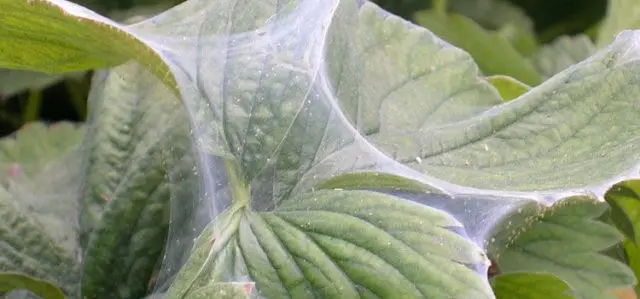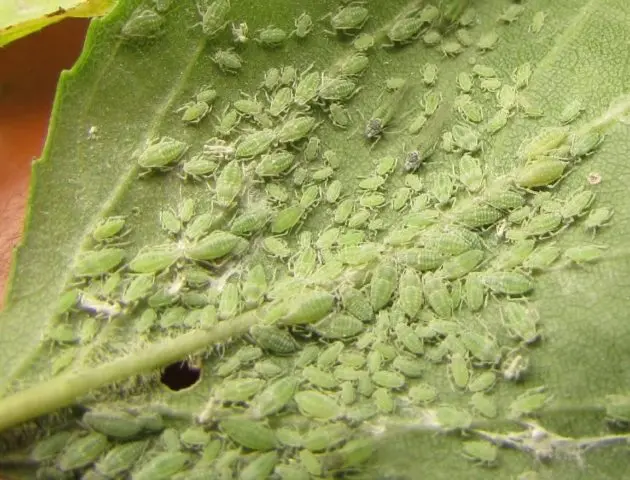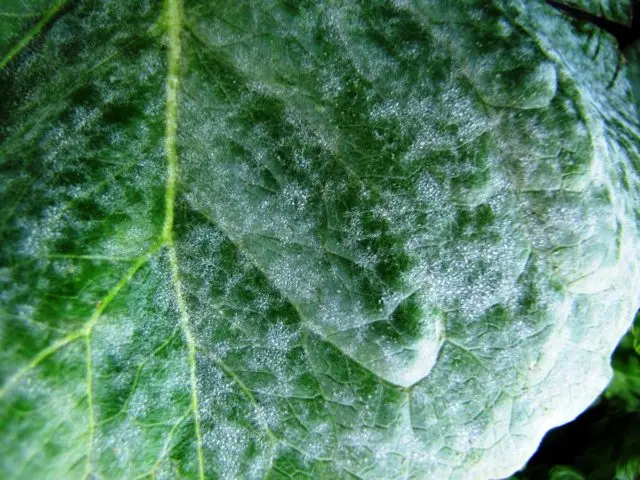Contents
Paniculata hydrangea Bobo is a young plant bred by Belgian scientists. The miniature shrub has gained great popularity among flower growers, as it is unpretentious, compact, and winter-hardy. Due to the long flowering, the plant fell in love not only with amateur flower growers, but also with landscape design professionals.
Description of hydrangea Bobo
Hydrangea Bobo is a dwarf, ornamental plant, its height does not exceed 60 cm. The plant is medium-growing, the annual growth is about 10 cm.
Rigid, strong, red-brown shoots are able to withstand the weight of numerous inflorescences, which harmonize beautifully with oblong dark olive foliage. Flowering begins in July and lasts until the first frost. During this period, the shrub is covered with large pyramidal inflorescences, which consist of numerous buds of pale pink or light lemon shades.
Bob’s hydrangea, like any garden plant, has positive and negative qualities. The advantages include:
- compact, decorative look;
- frost resistance;
- long flowering;
- disease resistance.
The disadvantages of many flower growers include regular monitoring of soil quality, since drought and poor oxygen supply to the roots can kill the Bobo hydrangea.
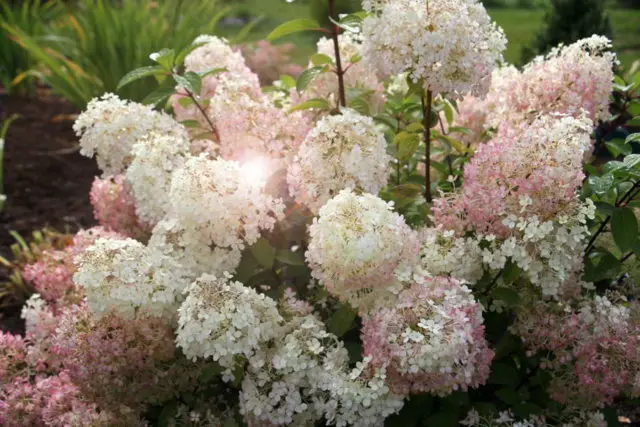
Due to uniform growth, an adult shrub acquires the shape of a ball
Hydrangea Bobo in landscape design
Hydrangea Bobo is widely used in landscape design. Due to their small, compact size, the coffee-pink flowers will look great with hot pink and lilac phlox. The most effective is a group of bushes with different colors.
Bobo mini hydrangea can also be planted in front of spruce crops.
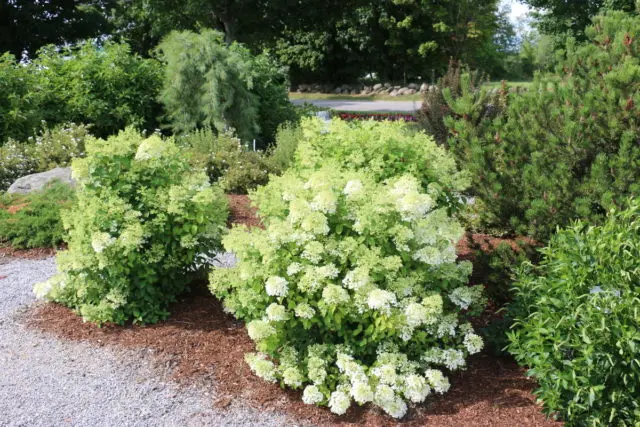
In autumn, after most of the perennials have faded, the evergreen needles will reveal the beauty of the blooming Bobo hydrangea.
Paniculata hydrangea Bobo will look good with hydrangeas that form spherical inflorescences. Panicles and balls must alternate, otherwise the invented composition will look incomplete. In order for the flower bed not to lose its decorative appearance, it is necessary to remove faded inflorescences in a timely manner.
Winter hardiness of hydrangea paniculata Bobo
Hydrangea Bobo is a cold-resistant culture. Without shelter, an adult plant can withstand frosts down to -25 ° C. But in order for the wintering to be successful, the plant needs to be prepared a month before the cold weather.
Since the young plant is weakened after planting and has not yet had time to build up a powerful root system, it is covered for the winter for 3 years. Otherwise, the shoots and roots freeze out, and the shrub dies.
Planting and caring for Bobo hydrangea
Bobo hydrangea can be planted in spring and autumn. Autumn planting is suitable for regions with a warm climate. The optimal period is September-October. During this time, the plant will successfully settle down in a new place, grow roots and go into hibernation stronger.
Spring planting is suitable for the north, as winters come early there, and during autumn planting, it is likely that the young shrub will not endure extreme cold and die.
Selection and preparation of the landing site
Dwarf hydrangea Bobo prefers to grow in partial shade. Direct sunlight adversely affects the plant, growth, development stops, the leaves dry out and fall off. In an open area, the inflorescences will be small, and the color will be dull.
For abundant and long flowering, the soil must be fertile, drained, slightly acidic.
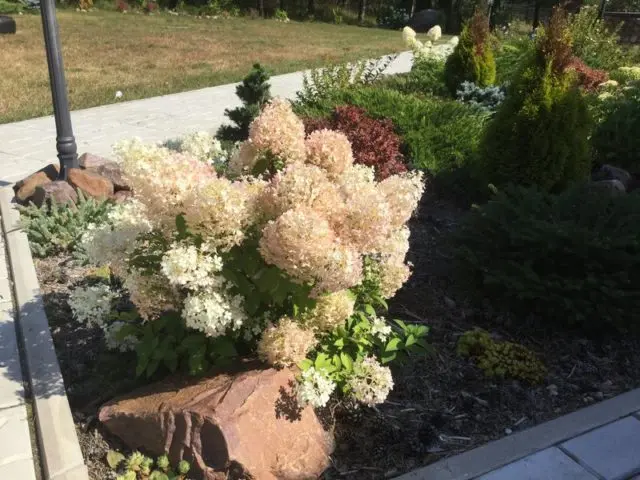
Stagnation of water leads to rotting of the roots and death of the shrub.
Rules of landing
The further growth of Bobo hydrangea depends on the seedling. Therefore, it is purchased in specialized stores or garden centers. Planting material must have at least 3 healthy shoots and a well-developed root system without signs of rot and damage. When buying, they inspect the branches, they must be intact without damage, the presence of diseases and pests.
Landing is carried out in sunny, dry weather. Precipitation in work will be a hindrance, since high humidity leads to rotting of the roots, the development of infections and the death of the plant.
Bobo hydrangeas are planted according to certain rules:
- In a properly selected area, a landing hole is dug 2 times larger than the root system.
- A layer of drainage is laid at the bottom (broken brick, expanded clay, pebbles).
- At the seedling, the root system is straightened and set in the center.
- The hole is filled with nutrient soil, trying not to leave air space.
- The top layer is compacted, spilled and mulched with peat, needles or bark.
Watering and top dressing
For abundant and long-term flowering of Bobo hydrangea, abundant, regular watering is necessary. To prevent the soil from drying out, irrigation is done once a week, during dry times watering is increased.
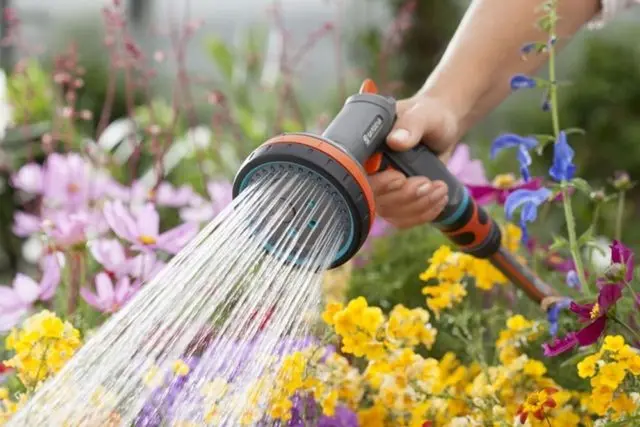
For irrigation, only settled or rain water is used, since lime water can cause irreparable harm to the plant.
So that the hydrangea does not suffer from oxygen deficiency, after watering the soil is loosened and mulched. For successful growth, Bobo hydrangea is fed 4 times a season:
- during the growing season – use organic matter;
- during the formation of buds, hydrangea spends a lot of energy, so it is fed with urea, superphosphate and potassium;
- during the flowering period, a mineral complex is introduced;
- in autumn, after flowering, potash fertilizer is applied under the bush.
Pruning Hydrangea Bobo
Pruning plays an important role in caring for the Bobo hydrangea. It is carried out in early spring, before sap flow. Since flower shoots appear on the apical buds on the branches of the current year, this manipulation must be approached with all responsibility. The number of branches to be left depends on the age and strength of the bush. All dried, not overwintered branches must be removed without fail. To maintain the quality of flowering and prevent strong growth of the bush, pruning is carried out annually.
Preparing for winter hydrangea Bobo
Hydrangea Bobo is a frost-resistant variety, so it grows well in central Our Country. But to facilitate wintering, the plant is prepared for frost. For this:
- In September, reduce watering.
- Under the hydrangea, potash fertilizers or wood ash are applied.
- With the onset of frost, the leaves are removed, leaving only those that will protect the flower buds.
- The soil is mulched with peat, straw, foliage with a layer of 10 cm.
- In regions with cold winters, branches are tied, bent to the ground, covered with agrofibre and burlap.
Reproduction of hydrangea Bobo
Hydrangea Bobo can be propagated in a generative and vegetative way. The generative method is the propagation of hydrangeas from seeds. The method is time-consuming and lengthy, so it is not suitable for beginner flower growers. To grow a bush with varietal characteristics, you need to purchase high-quality seeds. They must be fresh, because after a year the germination is lost. Self-collected seed does not retain varietal characteristics, so their collection is not advisable. Rules for sowing seeds:
- Sowing seeds is carried out only in autumn.
- Sowing material is buried in nutrient soil, which should include leaf or peat substrate, river sand.
- After sowing, the soil is moistened, and for rapid germination, the container is covered with glass or polyethylene.
- Seed boxes should be aired regularly. The optimum temperature for growth should not be lower than + 14 °C and not higher than + 20 °C.
- When cotyledon leaves appear, the first picking is carried out. To obtain lateral roots, the tap root is cut.
- The second pick in separate containers is carried out in the spring, after the appearance of 3-4 true sheets.
- After 2 weeks, the transplanted seedlings are hardened in the open air.
- In order not to weaken the plant, the first buds are removed.
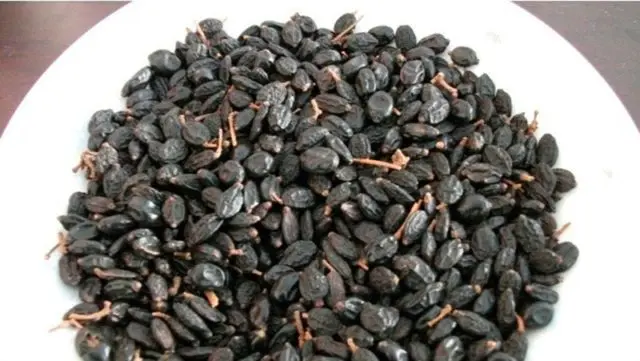
Seeds lose their germination capacity 2 years after harvest
Vegetative propagation involves planting parts of the mother plant. The mother bush can be propagated in 3 ways:
- Branches. A circular incision is made on the lower shoot and placed in a prepared trench, leaving the top above the ground. New roots will begin to form at the incision site. The trench is sprinkled with nutrient soil and spilled abundantly. After a strong root system is formed, the young plant is separated from the mother bush and transplanted to a prepared place.
- Division of the bush. This method is used during shrub transplantation. To do this, the mother plant is carefully removed from the ground and divided into the required number of divisions. Each part should have 3-4 shoots and strong roots. After picking, the plant is planted in a new place, shed and mulched. If the procedure was carried out correctly, the young plant will show itself in all its glory next year.
- Cuttings. In the spring, during the pruning of the Bobo hydrangea, healthy branches are selected and cuttings 10-15 cm in size are cut. The cut parts are kept in a growth stimulator and buried at an acute angle by 2-3 buds in the nutrient soil. The cuttings are covered with a glass jar and cleaned in a warm, shaded place.
Diseases and pests of hydrangea Bobo
Hydrangea Bobo has a strong immunity to diseases and pests. But with improper care, the plant often suffers from the following ailments:
- Chlorosis. A common disease that occurs due to lack of moisture and lack of iron in the soil. Treatment consists in spraying the bush with a solution with iron-containing preparations.

You can recognize the disease by lightening the leaf plate and fragility of the branches.
- Gray rot. A fungal disease that manifests itself due to high humidity. You can help the plant with the help of Bordeaux liquid.

The disease manifests itself in the form of a gray plaque on the aerial part, which is not erased.
- Spider mite. Microscopic insects settle on the green mass and cover it with a thin cobweb. Pests suck the juice from the plant, as a result, it weakens, stops growing and developing. In the fight against insects, the drug “Tiofos” is used, diluted strictly according to the instructions or an infusion of wood ash.

You can recognize the pest by a thin web
- Leaf aphid. Pests are located in large groups on leaf plates. Sucking out the juice, insects cause great harm to the plant. It weakens, growth and development stops. To stop the invasion of the pest will help the drug “Anabasin-sulfate”.

Aphids settle in large groups
- Powdery mildew. Appears in hot weather with high humidity. The foliage is covered with a white coating, which is easily removed with a finger. Bordeaux liquid will help get rid of the disease.

White coating is easily removed with a finger
Conclusion
Hydrangea Bobo is a miniature, flowering shrub. Subject to agricultural technology, paniculate inflorescences of pale pink color appear on the plant. A small shrub looks beautiful near undersized flowering perennials, next to spherical hydrangeas and near spruce crops.










